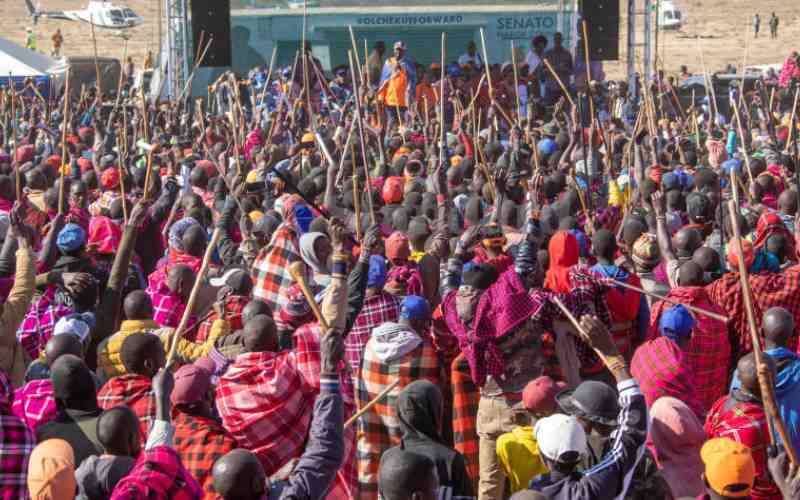×
The Standard e-Paper
Stay Informed, Even Offline

Suswa, a nondescript town, tucked away along the Mai Mahiu- Narok Road is laden with political symbolism among the Maasai community.
Here is where the Maasai leaders meet to make critical decisions on important matters to the community. Whenever there are critical national debates, Maasai political leaders and elders converge at Suswa, a dusty shopping centre along the road that leads to the world famous Maasai Mara National Game Reserve, to make declarations.